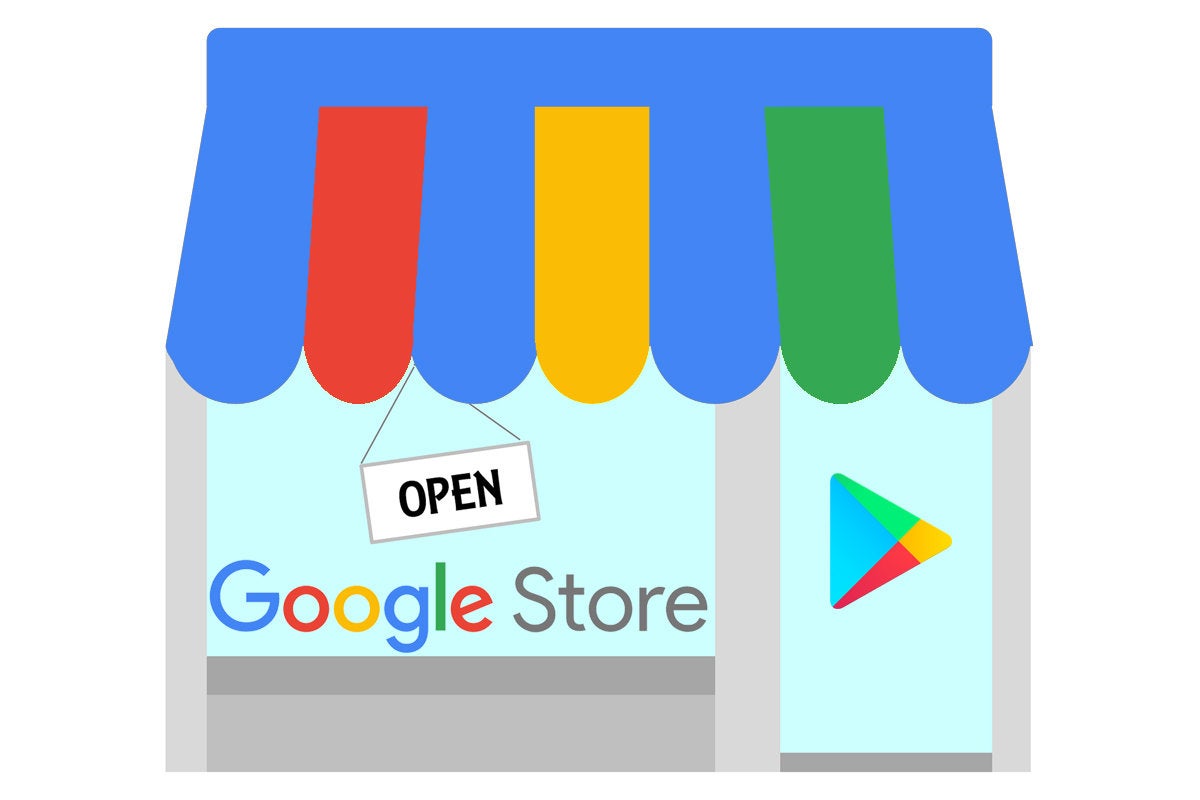In the beginning, Google was a search company. Period.
At some point, it shifted into being a software and services company — and then a software and services company that, y'know, kinda-sorta dabbled in hardware here and there.
These days, there's no denying it: In addition to its ongoing software and services efforts, Google is a hardware company through and through. Google has made that crystal clear with the launch of eight physical products and the accompanying shift toward emphasizing Google — not Android — as the primary ecosystem for its users. Sure, the hardware is designed specifically to showcase Google software and services, but the devices themselves are rapidly becoming an integral part of the equation.
Now, as the company works to raise availability and awareness of its hardware products, it's hard not to wonder how long it'll be before the first permanent standalone Google retail store shows up in the wild.
Crazy? Maybe. But the notion isn't quite as far-fetched as it seems.
The Google Store, from seed to (almost) tree
Providing a real-world retail presence is a notion Google has toyed with plenty over the years. Back in 2011, when hardware was still but a hobby, the company opened up a "Chrome Zone" pop-up shop in a Currys PC World store (no relation to the publication) in London.
Two years later, Google brought its own "specialists" into Best Buy stores around America. And in 2015, the effort expanded with the launch of full-fledged "Google Shops" that existed inside big box stores in the U.K.
Then, last year, Google opened a pop-up shop in New York to let people try out its first official Made By Google products. At the same time, it launched a series of new Google Shops within Best Buys in Canada, designed explicitly to showcase Google's own self-made hardware and "how [people] can use everything together." (Hmm...)
And now? As we speak today, the company is opening a series of new pop-up shops in New York and Los Angeles — shops that, in a Google first, will be selling Google hardware products in addition to demoing them. At the same time, the online Google Store has reshaped its identity with a newly narrowed focus on Google's own self-made products (and the now-certified accessories that accompany them).
Some Google Store perspective
Just as we can look back and see the last Nexus phones as baby steps toward the Pixel program of today, it's easy to look at these fledgling retail efforts as test runs for the inevitable-seeming standalone Google Store of the future — a permanent, year-round presence built to last. At this point, in fact, the question feels like less of an "if" and more of a "when."
Why? Because Google plainly wants to be a hardware giant — and in the mobile tech realm in particular, owning your own fully controlled retail experience is an enormous advantage when it comes to developing positive customer relationships. And yes, we can pretty much sum that up by saying "just like Apple" here, because Apple most certainly has gotten the retail and in-store support side of its operation exactly right.
Maybe it's no surprise, then, that Google's current retail chief is a former Apple retail executive. Janell Fischer oversaw the rollout of the aforementioned Best Buy Google Shops in Canada — an effort that, even back in 2016, TechCrunch described as feeling like "a prototype for bigger retail plans to come" and a place where Google was already "reinventing how it sells devices."
Back then, Fischer's title was "director of retail marketing." Now, according to her LinkedIn page, she's Google's "head of global retail design" — an intriguing evolution, to say the least.
If things are indeed set to progress on this front, timing would obviously be pivotal. As it stands now, Google clearly knows its current hardware operation is nowhere near ready for the sort of scale a true retail presence would require.
In an interview accompanying the launch of last year's original Pixel phone, Google hardware chief Rick Osterloh said: "We certainly aren’t going to have enormous volumes out of this product. This is very first innings for us."
At this year's Pixel 2 launch, meanwhile, Osterloh actually joked about the first-gen phone's limited supply. And in a related interview, he reiterated the notion that Google still wasn't expecting massive sales yet — but went on to say that he expects the Pixel to "become big, meaningful business for the company over time" and doesn't see it as being "a niche thing" even five years from now.
That moment when "big, meaningful business" becomes a reality is when a physical store would make sense — when Google has the reach and the supply to support such an endeavor and, conversely, when such a real-world retail presence could help push the hardware program to new heights.
Given Osterloh's five-year hope, it'll sure be interesting to look back on this and see how things look in 2022.







